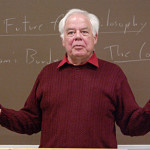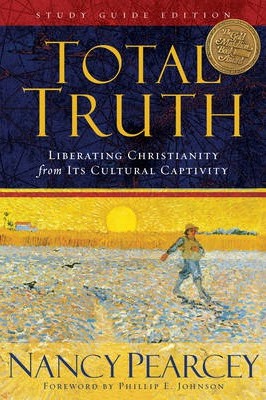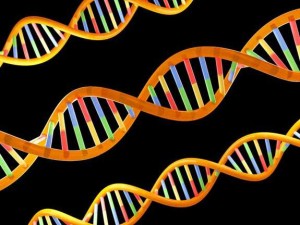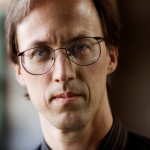Is truth “made,” or is it discovered? Is history meaningless or purposeful?
The current, global discussion of the nature of human sexuality, of marriage and family arises from two very different worldviews. One worldview sees truth as a social construct, the other sees truth as objective.
One view regards human sexuality as designed male and female as the physical manifestation of the transcendent masculine and feminine. The postmodern worldview denies transcendence altogether, thus transcendent sexuality is impossible. Rather, sexuality is merely a socially constructed gender. A family, and marriage, may be redefined to suit each individual’s concepts. Truth is subjective, it is “your truth,” it is “my truth.”
 The American postmodern philosopher Richard Rorty famously proclaimed, “Truth is made, not found!”
The American postmodern philosopher Richard Rorty famously proclaimed, “Truth is made, not found!”
Judeo-Christian theism, on the other hand, recognizes a real universe, with a real framework and laws. Truth is objective and it may be discovered.
In the postmodern universe there is no ultimate purpose. Life is a cosmic accident. If you think your life has purpose, it is because you wish it, not because it does.
In contrast, the Lord of history is purposeful. He created the universe. This gives rise to ontology, the study of the nature of being. My life, your life … these exist for a purpose. At the larger level is teleology which affirms that history is moving toward the fulfillment of that purpose for which all things were made.
Foremost Christian scholar and apologist, Nancy Pearcey quotes Rorty in her excellent book, Total Truth: Liberating Christianity From Its Cultural Captivity:
“The suggestion that truth … is out there” (that it is objective and universal), he says, “is a legacy of an age in which the world was seen as the creation of a being who had a language of his own, a ‘nonhuman language’ written into the cosmos.”
This is not simply the legacy of an age as if the new age can change reality. This is the legacy of reality. A person may choose their assumptions, but he cannot choose the conclusions that come from those assumptions.
Through much of the history of the Judeo-Christian faith, theologians have spoken of God’s divine revelation coming in two books: God’s works and God’s word. The first is general revelation – this is the book of creation. The universe reveals that God exists and it tells us something of his divine nature. The second book, called special revelation, is the Bible. And while the Bible is written in the language of the Hebrews (OT) and the Greeks (NT), creation is written in a nonhuman language, the language of God. And now humans are learning more of God’s language.
In 1953, Francis Crick and James Watson discovered the double helix of the DNA. Some 50 years later we saw the completion of the Human Genome Project. With these advances we are beginning to see and decipher the language of creation. Dr. Francis Collins, Director of the National Human Genome Research Institute, and an evangelical Christian, said, “We have caught the first glimpses of our instruction book, previously known only to God.”
 Pearcey writes: “The discovery of DNA, the coded instructions in every living thing, means that at the heart of life is a language, a message, information. In other words, the organic world really is a book, packed with complex biological information.”
Pearcey writes: “The discovery of DNA, the coded instructions in every living thing, means that at the heart of life is a language, a message, information. In other words, the organic world really is a book, packed with complex biological information.”
In our generation, science is affirming that a code/language is behind the universe. The universe is indeed “creation” not merely “nature.” Science is discovering the code of a Divine Code-Maker, the mathematical language of a Divine Mathematician, the language of a Divine Word-Maker. In other words, there is a Designer behind the design, a Creator behind the creation. While some of the fundamentals of creation may be described in terms of matter and energy, the more critical function seems to be “information” – code.
The discoveries in the book of creation are affirmed by the book of Scripture. In Genesis 1, we read that God spoke the universe into reality. This revelation is affirmed by the Psalm 33:9: “For he spoke, and it came to be; he commanded, and it stood firm.”
The Hebrew word for “said” found in throughout the creation narrative in Genesis 1 is אָמַר [ʾamar /aw·mar/]. This Hebrew term is translated “said” 4,874 times, “speak” 179 times, “answer” 99 times, “command” 30 times, “tell” 29 times, and “call” seven times. This is clearly the concept of speaking words, commanding things into existence.
The New Testament includes a creation story that reflects the creation narrative found in Genesis 1.
The Word of Life
1 In the beginning was the one
who is called the Word.
The Word was with God
and was truly God.
2 From the very beginning
the Word was with God.
3 And with this Word,
God created all things.
Nothing was made
without the Word.
Everything that was created
4 received its life from him,
and his life gave light
to everyone. (John 1:1-4)
Like Genesis 1, John 1 affirms that the universe was created by God speaking words. In fact the second person of the Trinity, Jesus Christ, is identified as the Divine Logos. The word here is λόγος (logos) and is translated variously as translates as “word” 218 times, “saying” 50 times, “account” eight times, “speech” eight times, “Word (Christ)” seven times.
Speaking code is the secret behind the universe, not some significant “chance event” (read evolution). Contemporary mathematician, theologian and philosopher, William Dembski, argues that language is the key to creation. In his book, The End of Christianity, Dembski writes:
 God speaks, and things happen. . . . Any act of creation actualizes an intention by an intelligent agent. . . . But in general, all actualizations of intentions can be realized in language. For instance, a precise enough set of instructions in a natural language can tell the sculptor how to form the statue, the musician how to record the notes, and the engineer how to draw up the blueprints. In this way language becomes the universal medium for actualizing intentions.
God speaks, and things happen. . . . Any act of creation actualizes an intention by an intelligent agent. . . . But in general, all actualizations of intentions can be realized in language. For instance, a precise enough set of instructions in a natural language can tell the sculptor how to form the statue, the musician how to record the notes, and the engineer how to draw up the blueprints. In this way language becomes the universal medium for actualizing intentions.
Contrary to Evolutionism we are not here by accident. We are here by divine intent. We are here as the result of divine speech; specifically we are here because of the work of the Trinitarian God. Dembski brilliantly summarizes the Trinity’s engagement in creation. He states it in several different ways. It is one thing to imagine something that has not existed before. Then must come the intention (the will) to turn the vision into reality. And finally the act of the will brings about the actualization of the thing that was dreamed about.
Dembski argues that each member of the Trinity had his own role to play in the creation. In the Genesis 1 account, the Father spoke the words, the Son carried out the decrees and the Spirit of God moved over the face of the deep. In the image of speaking, the Father is the Speaker, the Son is the Speech and the Holy Spirit is “the breath of God” that enables the speech to occur. Or yet again, the Father purposes, the Son articulates the purpose, and the Holy Spirit actualizes the purpose.
| Information Source of Creation | Speaking into Existence | Creation Engagement | |
| The Father | Purposes | The Speaker | Spoke the Words |
| The Son | Articulates | The Speech | Carried out the decrees |
| The Holy Spirit | Actualizes | The Speaking – The breath that enables the speech | Moved over the face of the water |
Truth is not a social construct as the postmoderns claim. It is a God construct. God establishes truth, not man. Man has the privilege of discovering truth by living vibrantly within the framework of reality that God has made.
God’s imagination envisioned then spoke into existence a beautiful and orderly universe. God’s intention was to create human beings in His own image, and thus of eternal significance. He made us for community, as a human manifestation of the Eternal Community – Trinity. He made us to be families – basic human communities whose purpose is to develop what He had made.
- Darrow Miller






1 Comment
Tom Love
August 28, 2015 - 12:14 amThis is a profound message, the significance of which is inestimable.